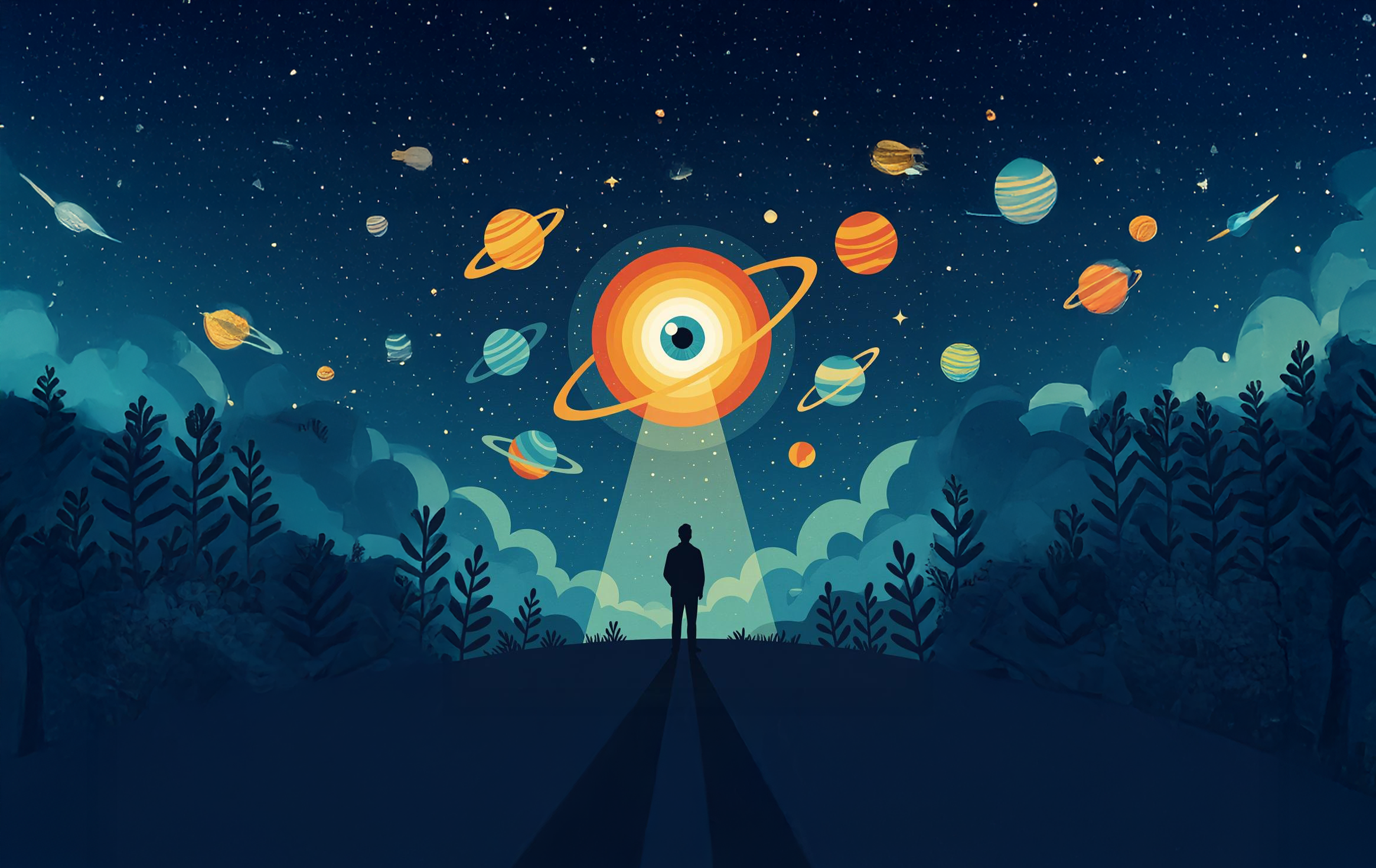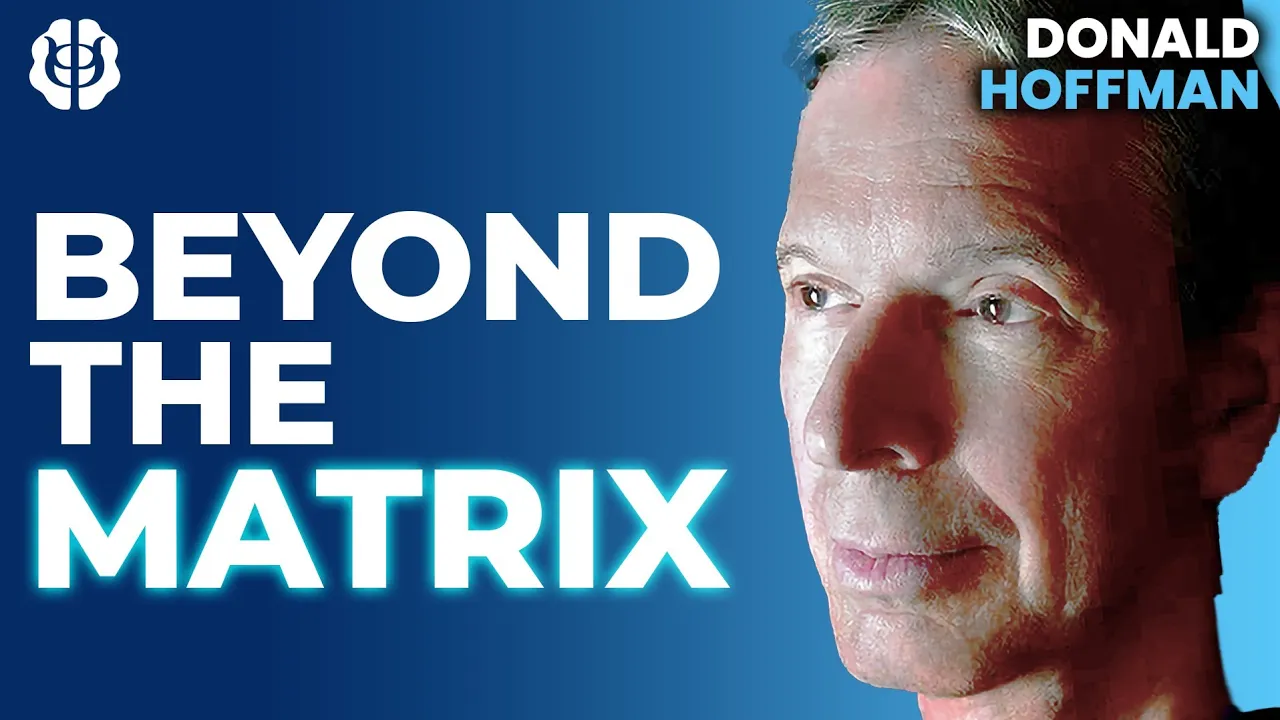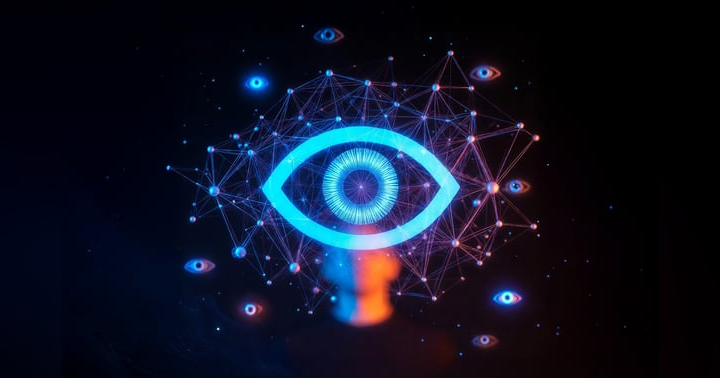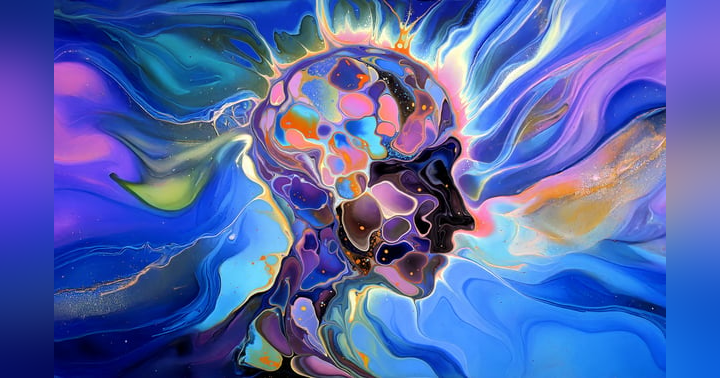The Observer Effect: A New Discovery Shaping Our Understanding of Reality

In this blog post, we'll delve into the fascinating and paradigm-shifting 'observer' discovery discussed in our latest podcast episode, Donald Hoffman: What is an "Observer"? New Discovery in Search of "One" Consciousness Beyond Reality. We had the distinct pleasure of hosting Donald Hoffman, a leading cognitive scientist, to explore his groundbreaking ideas and the profound implications they have for our understanding of reality, consciousness, and existence itself. This post serves as a deeper dive into the topics covered, providing context and further exploration of the concepts presented.
Who is Donald Hoffman?
Donald Hoffman is Professor Emeritus of Cognitive Sciences at the University of California, Irvine, holding joint appointments in the Department of Philosophy, the Department of Logic and Philosophy of Science, and the School of Computer Science. He earned his Ph.D. from MIT and has authored over 120 scientific papers and three books, including the bestseller "The Case Against Reality: Why Evolution Hid the Truth from Our Eyes." His work challenges fundamental assumptions about how we perceive the world and explores the possibility that our perceptions are not a reflection of objective reality but rather a user interface designed for survival.
The Groundbreaking 'Observer' Discovery
At the heart of our discussion is the concept of the "observer." In conventional physics, the observer effect refers to the phenomenon where observing a quantum system inevitably changes it. Hoffman, however, takes this idea much further. He proposes that reality itself may be fundamentally constituted by observers. These observers aren't necessarily human beings or even conscious entities in the traditional sense. Instead, they are fundamental elements of reality that interact and shape the world we experience. This shifts the focus from a universe of objective objects to a universe of interacting conscious agents.
The core idea is that our perceptions of space, time, and physical objects are merely a user interface, similar to the icons on your computer desktop. Just as the icons are not the actual files and programs, our perceptions are not a true representation of the underlying reality. Instead, they are simplified and tailored for survival. This 'user interface' allows us to act effectively in the world without needing to process the immense complexity of the true reality.
Challenging Conventional Views of Reality
This perspective directly challenges the conventional scientific view that the universe is composed of physical objects existing independently of observation. Hoffman argues that this view is not only unsupported by evidence but also leads to paradoxes and unresolved problems in physics and philosophy. For instance, the measurement problem in quantum mechanics, which asks how quantum probabilities collapse into definite states upon observation, becomes less mysterious if reality itself is fundamentally observer-dependent.
By suggesting that consciousness is not merely a byproduct of physical processes but rather a fundamental aspect of reality, Hoffman's work offers a radical alternative to materialism. This raises profound questions about the nature of existence, the relationship between mind and matter, and the potential for consciousness to extend beyond the confines of our individual brains.
Theories of Consciousness Explored
During our conversation, we explored various theories of consciousness, including those proposed by Graziano (Attention Schema Theory), Tononi (Integrated Information Theory), Hammeroff (Orchestrated Objective Reduction), and Frankish (Illusionism). Each theory offers a different perspective on the nature and origin of consciousness. Hoffman's framework provides a unique lens through which to evaluate these theories.
- Attention Schema Theory (AST): Graziano's AST suggests that consciousness is a model that the brain creates to track and control attention. Hoffman's perspective could see the attention schema as another aspect of the 'user interface,' a tool that helps us navigate our experience within the broader reality of interacting observers.
- Integrated Information Theory (IIT): Tononi's IIT proposes that consciousness is directly related to the amount of integrated information a system possesses. From Hoffman's point of view, the level of integration might reflect the complexity of interactions between observers, with higher integration corresponding to richer conscious experiences.
- Orchestrated Objective Reduction (Orch OR): Hammeroff and Penrose's Orch OR theory posits that consciousness arises from quantum processes in microtubules within brain neurons. While controversial, Hoffman's framework could potentially accommodate this theory by suggesting that these quantum processes are influenced by the fundamental observer-dependent nature of reality.
- Illusionism: Frankish's Illusionism argues that consciousness is an illusion, a convenient fiction created by the brain. Hoffman's viewpoint would disagree, suggesting that while our perception of consciousness might be an illusion, the underlying reality is fundamentally conscious, albeit in a way that is far removed from our subjective experience.
Theoretical Limits in Science
We discussed the potential theoretical limits in science, particularly the limitations of a purely materialistic approach. If reality is fundamentally observer-dependent, then our current scientific methods, which are based on the assumption of an objective, observer-independent reality, may be inherently limited in their ability to fully understand the nature of the universe. This doesn't mean that science is wrong, but rather that it may be incomplete, focusing on a specific level of reality while overlooking deeper layers of existence.
Finding 'The One' Mathematically and the Concept of Scientific Spirituality
The conversation took an intriguing turn when we discussed the possibility of finding "The One" mathematically. This refers to the idea that there might be a single, fundamental principle or entity that underlies all of reality. In Hoffman's framework, this could be a unified system of interacting observers from which all other phenomena emerge. This concept edges into the realm of scientific spirituality, exploring the possibility of bridging the gap between scientific inquiry and spiritual understanding.
The concept of "The One" can be seen as an attempt to unify all conscious agents into a single, coherent system. This echoes the idea of a universal consciousness or a ground of being found in many spiritual traditions. However, Hoffman's approach seeks to explore this concept through the rigor of mathematical and scientific analysis, aiming to provide a more concrete and testable framework.
Exploring Idealism: Thomas Campbell and Bernardo Kastrup
We touched upon Idealism, the philosophical view that reality is fundamentally mental or spiritual. We specifically discussed the ideas of Thomas Campbell and Bernardo Kastrup. Campbell, through his work on simulation theory and consciousness, suggests that reality is a virtual environment created by a larger consciousness system. Kastrup advocates for analytic idealism, which posits that consciousness is the fundamental reality, and the physical world is merely an appearance of this consciousness.
- Thomas Campbell's Idealism: Campbell's model posits that we are living in a simulated reality created by a larger, more fundamental consciousness. This simulation is designed to provide opportunities for learning and growth. From Hoffman's perspective, Campbell's simulated reality could be seen as another layer of the 'user interface,' a sophisticated system that presents a particular set of experiences to conscious agents.
- Bernardo Kastrup's Analytic Idealism: Kastrup's analytic idealism argues that consciousness is primary and that the physical world is merely an externalization or appearance of this consciousness. This aligns well with Hoffman's framework, which places consciousness at the heart of reality and suggests that our perceptions of the physical world are not necessarily reflective of its true nature.
Beyond Virtual Reality, Matrix, and Spacetime
It's important to distinguish Hoffman's ideas from simple virtual reality or Matrix-like simulations. While the "user interface" analogy might suggest a simulation, Hoffman's view is more radical. He proposes that spacetime itself is part of the user interface, not the underlying reality. The true reality may be fundamentally different from anything we can currently conceive.
The key difference is that virtual reality and the Matrix still rely on a physical substrate upon which the simulation is running. In Hoffman's framework, there is no such physical substrate. Reality is fundamentally composed of interacting conscious agents, and the physical world is merely a projection of these interactions. This moves beyond the limitations of a simulation and into a more profound understanding of existence.
Living vs. Non-living: A New Perspective
The distinction between living and non-living things becomes blurred in this framework. If reality is fundamentally conscious, then even seemingly inanimate objects may possess a form of consciousness or agency. This raises questions about the nature of life itself and the criteria we use to distinguish between living and non-living entities. Michael Levin's work on bioelectricity and morphogenesis, which we discussed later, provides a fascinating perspective on this issue.
Instead of seeing life as a unique phenomenon that emerges from non-living matter, we might need to consider life as a manifestation of the fundamental consciousness that pervades all of reality. This could lead to a more holistic and interconnected view of the world, where all entities are seen as part of a larger conscious system.
Conceptualizing The Big Bang Under This Framework
The Big Bang, traditionally understood as the beginning of the physical universe, can be reinterpreted within this framework. Instead of being the origin of space, time, and matter, the Big Bang might be seen as the initial emergence of a particular configuration of interacting observers. This configuration then gives rise to the spacetime and physical laws that we observe.
This perspective offers a new way to understand the origin of the universe. It suggests that the Big Bang was not simply a random event but rather a specific point in the evolution of consciousness. This point marked the beginning of our particular 'user interface' and the emergence of the world as we know it.
Michael Levin's Work and the Influence of Federico Faggin
We discussed the groundbreaking work of Michael Levin, who studies bioelectricity and morphogenesis. Levin's research shows that electrical signals play a crucial role in guiding the development and regeneration of biological tissues. This suggests that even at the cellular level, there is a form of intelligence or agency at play. We also mentioned the influence of Federico Faggin, a pioneer in microchip technology, who has since turned his attention to the study of consciousness.
Levin's work provides empirical evidence for the idea that even seemingly simple biological systems possess a form of intelligence or agency. This supports the notion that consciousness is not limited to complex brains but is a more fundamental aspect of reality. Faggin's involvement in the study of consciousness further highlights the growing interest in this field among scientists and technologists.
Are there possible 'Others'? Exploring Multiverses
The concept of multiverses arises naturally within this framework. If reality is fundamentally observer-dependent, then there may be countless other configurations of interacting observers, each giving rise to its own unique universe. These universes might have different physical laws, different dimensions, and different forms of life.
The possibility of multiverses expands our understanding of reality even further. It suggests that our universe is just one of many, each with its own unique set of experiences and possibilities. This raises profound questions about the nature of existence and the potential for other forms of consciousness beyond our own.
Idealism's Implications on Humanity
If Idealism is true, the implications for humanity are profound. It suggests that we are not simply physical beings living in a meaningless universe. Instead, we are fundamental aspects of reality, playing a crucial role in the unfolding of consciousness. This understanding can lead to a greater sense of purpose, meaning, and responsibility.
This shift in perspective can also have a transformative effect on our lives. It can lead to a greater appreciation for the interconnectedness of all things, a deeper understanding of our own consciousness, and a renewed sense of hope and possibility.
Diversity of Experience & Purpose of 'The One'
The diversity of experience within this framework becomes a key element. Each observer contributes its unique perspective to the overall system, enriching the totality of consciousness. The purpose of "The One" might be to explore the infinite possibilities of experience through these diverse perspectives.
This highlights the importance of individuality and the value of each unique experience. It suggests that we are not simply cogs in a machine but rather essential components of a larger, more complex system. Our individual contributions are crucial to the evolution of consciousness and the ongoing exploration of reality.
Avoiding Cult-like Behavior in Exploring These Concepts
It's crucial to approach these concepts with a healthy dose of skepticism and critical thinking. The exploration of consciousness and the nature of reality can be deeply personal and transformative, but it's important to avoid falling into cult-like behavior or blindly accepting any particular viewpoint. Maintain a spirit of open inquiry and be willing to challenge your own beliefs.
It is essential to always foster critical thinking, independent research, and healthy skepticism when exploring these concepts. The pursuit of understanding the nature of reality should be a journey of exploration and discovery, not a surrender to dogma or unquestioning belief.
Conclusion: Redefining Our Understanding of Consciousness and Existence
The 'observer' discovery and the exploration of Idealism offer a radical new perspective on reality, consciousness, and existence. By challenging conventional views and proposing a universe fundamentally composed of interacting conscious agents, these ideas open up exciting new avenues for scientific and philosophical inquiry. As discussed in our podcast episode, Donald Hoffman: What is an "Observer"? New Discovery in Search of "One" Consciousness Beyond Reality, these concepts push the boundaries of our understanding and invite us to reconsider the very nature of our being. By delving into these ideas, we can begin to redefine our understanding of consciousness and our place in the cosmos.








